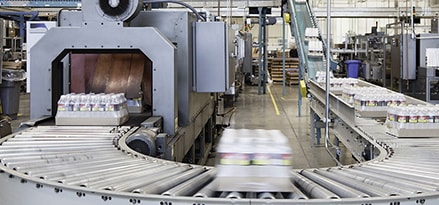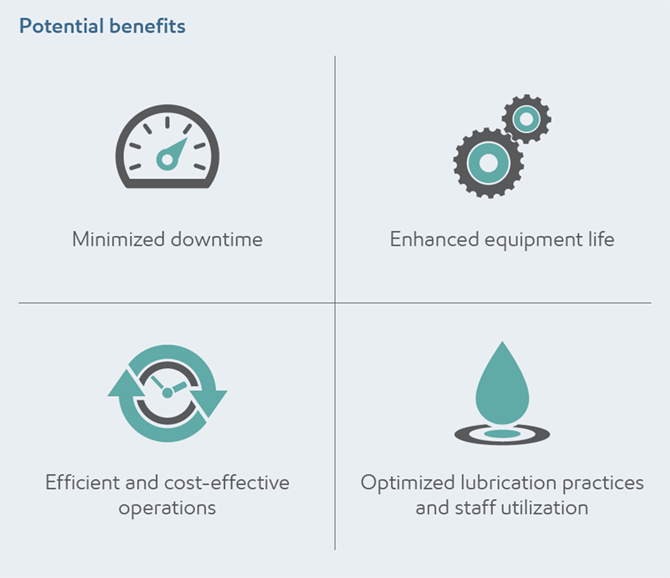Plant study

Expert analysis and recommendations help streamline operations to cut inventory and maintenance costs while improving performance and production.
Description
During this service, ExxonMobil engineers conduct a thorough assessment of your plant’s current lubricants, lubrication requirements and practices. They provide a comprehensive review and documentation of practices and apply expert insight to your operation. This allows them to identify and record areas where a change in lubricant or practices could improve performance.
Application
We work with you to:
- Set objectives, expectations, focus and scope
- Secure approvals, plant access, equipment records and Operating Manuals
- Schedule and perform the plant survey
- Review current lubrication practices and identify areas for improvement
- Compare results with the industry’s best-in-class operations
- Prepare and present a formal report of findings and recommendations
Deliverable: The Engineering Service Report documents — for plant management and key functions — the analysis of lubrication program assessment-related activities at the plant, makes recommendations for improvement and estimates the value of suggested changes.
Common opportunity areas
- Leakage of lubricant
- High or low operating temperatures
- Lubrication control devices
- Missing filters, screens, caps, etc
- Contamination
- Lubricants not changed based on condition
- Inaccessible lubrication points
- High part/component replacement rates
- Unscheduled equipment downtime
- Training of maintenance staff
- Leakage of lubricant
- Predictive and preventative maintenance plans
Safety, health and environment
Our field engineers are attuned to the hazards of handling, storing and using petroleum products. They strictly observe safety and environmental rules, as well as ExxonMobil and customer safety practices. They coordinate efforts through designated plant personnel verifying electrical and mechanical lockout and proper tagging prior to working on equipment, and providing recommendations to help reduce hazards.

